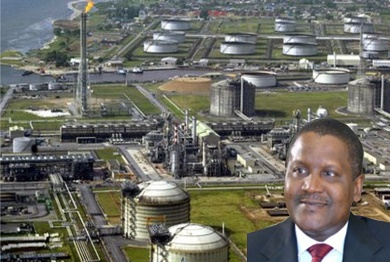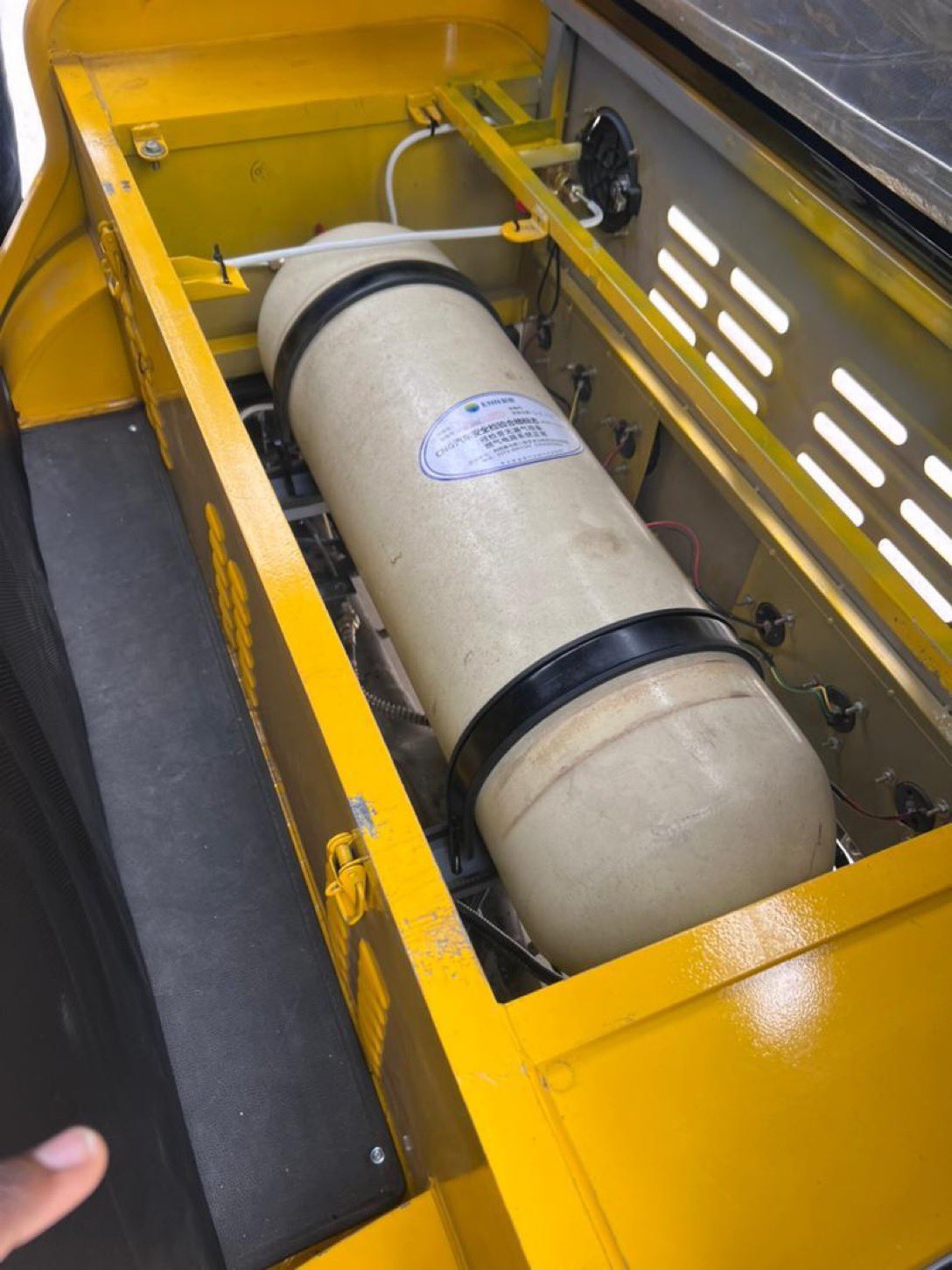Dangote Refinery To Hit 50% Utilisation By 2020

The 650,000 barrels per day Dangote Refinery has been projected to hit 50 per cent capacity utilisation by 2020.
The capacity utilisation of the Lagos-based plant, scheduled to come on stream in 2019, would rise to 90 per cent by 2030.
PriceWaterCoopers, in its latest report, Modular refineries: Merits and challenges, stated that the feat would make West Africa to become a great refining hub in Africa.
The report, which puts existing refineries at 20 percent utilization, stated that Nigeria and West Africa have a deficit of 113,000 barrels per day, bpd.
“Nigeria’s refineries continue to operate at abysmally low utilisation rates. 8.5 percent combined utilisation as at 2016 and 37 percent as at 2017. Refineries have been forced to halt operations multiple times as crude supply lines have been routinely targeted by militant groups.
“When operational, refineries are optimised to produce heavier oil.
“$1.4 -1.8 billion of private investment is required for intervention and rehabilitation projects as Nigeria consumes over 17 billion litres of PMS (Premium motor spirit) annually and consumes over 3 billion litres of AGO (Automated gas oil).
“Transportation and power are the major drivers of demand for PMS in the country while increasing the demand for self-generation options such as AGO powered generators is the major driver of AGO demand.
“Imports currently account for over 90 percent of PMS supplied in the country and while imports currently account for about 60 percent of AGO supplied, Nigeria consumes over 2.5 billion litres of kerosene annually.
“Kerosene is used primarily as a cooking fuel by low-middle income households. Imports currently account for over 80 percent of kerosene supplied in the country. Imports currently account for over 80 percent of West Africa’s refined product supply. Current demand for refined products in the region is estimated at 39 billion litres and refineries such as SIR (Ivory Coast), SOGARA (Gabon) and SAR (Senegal) cannot meet this. There is an opportunity for potential uptake by neighbouring countries if the market has Nigeria’s refined products readily available.”
In its previous report, the organisation had indicated that modular refineries would assist to bridge the supply gap of 53,000 bpd, (approximately 8.5 million litres daily) in Nigeria.
It had stated that by 2026, Nigeria’s exports to the region would exceed 130,000 bpd (approximately 21 million litres daily), reducing the region’s imports from US and Europe by approximately 80 per cent.
The scenarios painted by PwC through which Nigeria can attain the great feat, are based on some forward assumptions about refining in Nigeria and the West Africa region.
According to PWC, “Our outlook illustrates the potential of the sector with focus on the volumes that modular refineries can contribute to bridging the supply gap in the country and regionally.
“At optimal utilisation, the refinery is capable of meeting the country’s demand, however, a major headwind to achieving a fully optimised run, is availability of crude feedstock. At full capacity, the refinery will require about 19 (1 million barrel) cargoes of crude monthly, approximately half of Algeria’s (third largest producer in Africa) production.”
It had stated that for the initial years of operation, availability of crude feed stock may be a significant challenge. PWC had indicated that the current supply gap within the country and region creates an opportunity, not just for conventional refineries such as the Dangote Refinery, but also for modular refineries which will be set up primarily to meet domestic demand.
The organisation had stated that another critical assumption is that the modular refineries’ yield will be limited to fuel oil and diesel as the lightest hydrocarbon produced.
“If Dangote Refinery (650,000 b/d) opens its gates mid-2019, and operates at 50 percent utilisation, existing refineries (445,000 b/d) are operating at 15 percent utilization and modular refineries (combined capacity of 100,000 bpd) also come on stream early 2019, will operate at 90 percent utilization. These ramp up to 70 percent, 20 percent and 90 percent respectively by 2030.”
However, the Technical Consultant to the President/CEO on Refinery & Petrochemical Projects, Dangote Industries Limited, Mr. Babajide Soyode, disclosed in an exclusive interview that the project was progressing according to plan.
Already, he said that the sand filling had been completed while pilling was ongoing at site.
Soyode disclosed that these and jetty would need to be completed before construction of the refinery.
Chief Executive Officer, Matrix Petro-Chem Limited, Dr. John Erinne, disclosed in an interview that, “Nigeria has a population of about 180 million. There is nothing absolutely wrong with a company having an interest in modular refinery. Modular refineries could have a role to play in the economy, especially in the oil and gas sector, but the only thing is that any business group that wants to go into it must make sure that it does the study very well, that it has a very sound feasibility study that clearly advises whether it’s viable or not and how it should proceed to avoid running into catastrophe down the road.
“Look at it this way, consumption of refined products in this country is in the interim, maybe about 60 million litres per day. Let’s observe a small refinery; an average small refinery can be able to push out a million litres of petroleum product optimistically. That means you need about 50 or 60 of such plants, meaning that these cannot be the only solution to the shortfall in production of refined products in this country. Also, what it means is that modular refineries can only help to breach some aspect of the gap, which cannot be the sole solution.
“Clearly, you need so many of them to be able to breach the import gap, and what that tells you immediately is that it would not be an efficient solution, and that also underscores the fact that globally, we are moving into world scale process plant, for petroleum products and petrochemicals.
“Well, possibly by 2019, we will have one at our doorstep in Lagos State; Dangote Group is building a refinery, the biggest single train refinery in the world. Hopefully, when it comes to fruition in 2019, then we are going to have a world scale plant by our doorstep, and that’s one step, and that plant could actually be a game changer.”
VANGUARD









